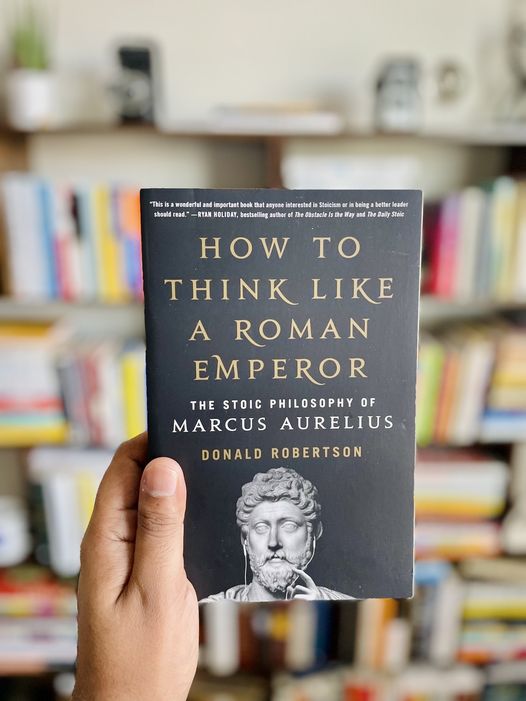In his insightful book, "How to Think Like a Roman Emperor," Donald Robertson delves into the Stoic philosophy practiced by the Roman emperors, particularly Marcus Aurelius, offering timeless wisdom for navigating life's challenges with resilience and a clear mind.
Here are 10 lessons we can glean from this transformative book:
1. Embrace Your Mortality: Accepting your own mortality isn't about morbid dwelling, but a powerful tool for living more fully. It reminds you to prioritize what truly matters and focus on actions that contribute to a meaningful life.
2. Focus on What You Can Control: Stoicism teaches us to distinguish between what we can control (our thoughts, actions, and responses) and what we can't (external events, other people's behavior). This shift in perspective empowers us to focus on proactive solutions and avoid wasting energy on uncontrollable situations.
3. See Obstacles as Opportunities: Challenges and setbacks are inevitable, but Stoics view them as opportunities for growth and learning. They encourage us to reframe obstacles as exercises in resilience, patience, and resourcefulness.
4. Practice Gratitude and Mindfulness: Stoicism emphasizes appreciating the present moment and the good things we already have. Cultivating gratitude and mindfulness helps us avoid chasing fleeting pleasures and find contentment in even the simplest things.
5. Act with Virtue: Stoicism values living in accordance with four cardinal virtues: wisdom, justice, courage, and temperance. These virtues act as guiding principles for making ethical decisions and navigating complex situations.
6. Treat Others with Fairness and Compassion: Stoicism teaches us to treat everyone with respect and fairness, regardless of their social status or background. This fosters a sense of interconnectedness and promotes a more just and harmonious society.
7. Let Go of Resentment and Anger: Holding onto negative emotions like anger and resentment only harms ourselves. Stoicism encourages forgiveness and letting go, freeing us from unnecessary burdens and allowing for inner peace.
8. Live a Life of Service: Stoicism emphasizes using our talents and resources to serve others and contribute to the greater good. This can involve volunteering, mentoring, or simply being kind and helpful in everyday interactions.
9. Be a Stoic Skeptic: Don't blindly accept every belief or opinion. Stoics encourage questioning, critical thinking, and examining evidence before forming judgments. This promotes intellectual honesty and personal growth.
10. Embrace Continual Learning: Stoicism is a lifelong journey of self-improvement. Be open to learning from experiences, mistakes, and the wisdom of others. This constant learning keeps your mind sharp and your spirit open to new possibilities.
"How to Think Like a Roman Emperor" is not about becoming a literal emperor, but rather about adopting a philosophical framework that allows you to live a more meaningful, resilient, and fulfilling life. By incorporating these lessons into your daily practice, you can navigate challenges with grace, find joy in the simple things, and contribute positively to the world around you.




